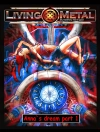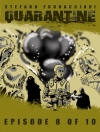Dulu Wang (1909-1977), was a famous Chinese Chivalry (Martial Art) novelist in the nineteen thirties and forties who wrote many novels including Crane-Iron Pentalogy (Dancing Crane, Singing Phoenix舞鹤鸣鸾记 aka鶴驚昆侖, 1940; Precious Sword, Golden Hairpin寶劍金釵, 1938; Sword Spirit, Pearl Light劍氣珠光, 1939; Crouching Tiger, Hidden Dragon 臥虎藏龍, 1941; and Iron Knight, Silver Vase 鐵騎銀瓶, 1942) which was adapted into a film under the title ‘Crouching Tiger, Hidden Dragon’by Ang Lee and his colleagues in 2000. Its spectacular action, rhapsodic landscapes and tragic romance have touched audiences in Asia, North America and around the world and won over 40 awards and was nominated for 10 Academy Awards, including Best Picture, and won Best Foreign Language Film, Best Art Direction, Best Original Score and Best Cinematography. In 2019, the film was ranked the 51st in 100 best films of the 21st century list by Guardian.
Dulu Wang is considered one of the five greatest wuxia (which literally means ‘martial hero’) fiction writers of the Northern School in the Republican. He was less interested in writing about ruthless killings; instead, he focused on his characters’ development, their emotions, friendship, and passions. Wang had great sympathy for women who suffered cruel oppression by the society and its feudal system, and his novels featured many strong female characters, warriors, and heroines. Most of his stories featured tragic endings. His perfect combination of chivalry, romance and tragedy in his novels have thrilled many critics and readers and this style has influenced many authors.
During 1925-1949 Wang published more 90 novels and thousands of articles and poems. Many of Wang’s books will be published in the Collected Works of Dulu Wang.
Avenger (女刺客) was published through a newspaper (平报, Ping Bao) from June 19 to October 5, 1928. The story occurred in Late Qing Dynasty. Tang, a retired local governor who hated the incompetent and corrupt empire, was imprisoned and tortured to death because of his words. Xu, a wuxia hero decided to protect Tang’s orphan, a 15 year’s old daughter, Qing and to kill the two cruel officials who murdered Tang: Prince Mu and Lu, the Vice Minister of Penal Department. Xu killed Mu, but unfortunately was injured during a fight and dead. Qing had no choice but to take matters into her own hands. She went to Lu’s mansion, killed Lu in front of the gate, and then killed herself.
王度廬是中國著名的武俠言情小說作家,在上個世紀三四十年代曾發表过大量小說、雜文、詩詞等作品。《鶴驚昆侖》、《寶劍金釵》、《劍氣珠光》、《臥虎藏龍》、《鐵騎銀瓶》是王度廬創作的五部內容相互關聯,又各自獨立的武俠悲情小說,通常被合稱為’鶴-鐵五部’。2000年李安導演根據該系列改編的電影《臥虎藏龍》,曾獲得40多個國際電影大獎,並榮獲了第73屆奧斯卡最佳外語片等四項大獎。
本社出版的《王度廬選集》,收入了王度廬先生的包括’鶴-鐵五部’在內的不同時期不同類型的部分作品,王宏並對其做了一些必要整理和訂正。
《女刺客》是1928年6月19日至10月5日在北京平报上发表的。所述故事发生在晚清,一个痛恨无能和腐败的朝廷和恶吏,已经隐退的知府唐竹禅,因为酒后所作的一首诗而被监禁并折磨致死。侠客徐凌鹏得知后便决定暗中保护唐的孤女,15岁的女儿蝶卿,并除掉杀害唐的两个官员:皇叔穆亲王和刑部侍郎卢静舟。徐杀了穆,但不幸在一场战斗中受伤而死。蝶卿失去了保护自己,为自己报杀父之仇,并且自己又深爱的人,身心俱焚,别无选择,只能乔装来到卢家,刺杀了卢,然后自杀。
İçerik tablosu
出版說明(Preface)……………………………………………. 1
序 (Foreword)………………………………………………….. 5
第一章 遣芳春狂士触文网 构奇祸孤女寄人篱……………. 15
第二章 遭白眼愁碎阿侬心 惊绝艳销煞荡子魄……………. 24
第三章 江水一湾侠士仗义 泪丝万缕孝女思亲……………. 32
第四章 两不相识探监凭侠骨 一场没趣求婚使奸心………. 48
第五章 生死别起解京都道 忠烈心救护冤枉人……………. 59
第六章 炎凉世态堪使豪杰愤 潦倒病榻备受美人怜………. 72
第七章 徐凌鹏大闹侍郎弟 唐竹禅瘦死刑部监……………. 80
第八章 两虎相搏非伤即死 千秋遗恨抚塚销魂……………. 95
跋 – 尋找父親的足跡 (Epilogue)……………………………….. 111
已知王度廬著作目錄 (Bibliography)………………………………… 135












